‘In nature nothing exists alone’
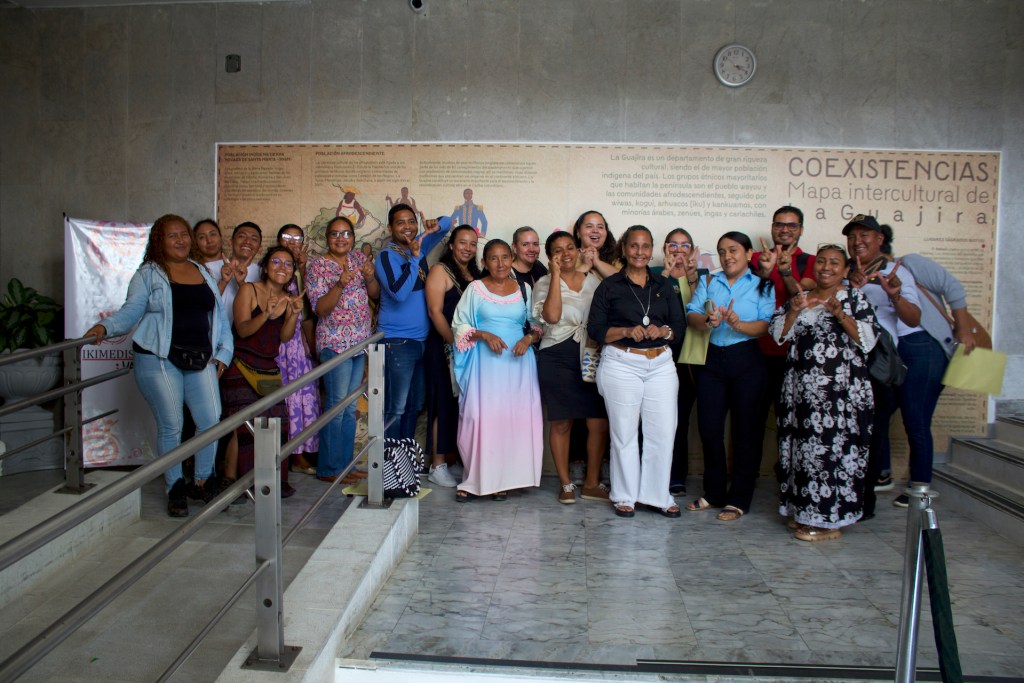
In the social studies of science (STS), the metaphor for the assembly that makes it possible for things to “work” is already classic. It states that airplanes do not fly, it is the airlines that fly. To this metaphor, we can add so many other things: artifacts, lines of code, methodologies, institutions, and people, that make the operation of an airplane make sense, that this technology is “social”, not because it is carried out only by people, but because it manages to link human and material entities to take advantage of their collective power to act in the world and transform it.
What are we doing?
Implementing “Reading Wikipedia in The Classroom” (RWC) is similar. Arriving at rural schools in La Guajira, Colombia, has involved coordinating efforts with the Ministry of Education, the Secretary of Education of La Guajira, the Bank of the Republic, and school principals and teachers. It has also been necessary to design methodologies in collaboration with facilitators, experts, and the team behind the implementation of the program. Logistically, we have coordinated the production of materials, food management, travel arrangements for facilitators, and, last but not least, we have involved and enrolled the Wayuú Wikimedistas, among other aspects.
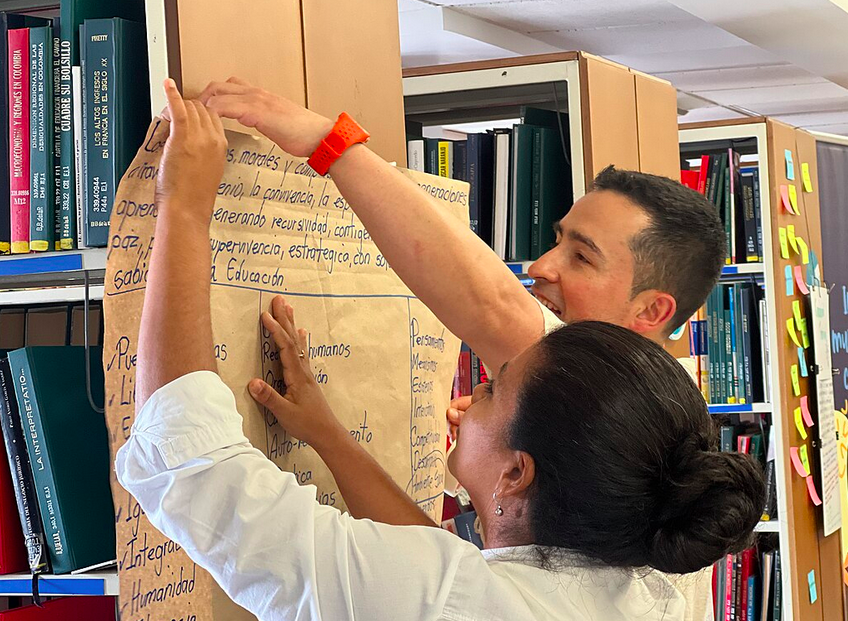
This deployment not only strengthens the Wikimedia Colombia (WMCO) teamwork but also allows us to relate and cooperate with others, joining forces to transform the territories from a situated perspective. In addition, it has reinforced the processes and projects that are already being implemented by the groups, Wikimedia chapters, and the Wikimedia Foundation (WMF) in the region. Finally, although not initially planned, we identify that it contributes to the growth of the Wikimedia movement, in line with recommendation number 6 of the 2030 strategy: “Invest in the development of competencies and leadership“. RWC implementation empowers, strengthens, and leaves leadership tools in place in territorial processes.
What is the program in Colombia?
The Colombian version of the RWC program retains three modules from its initial version: access to information, evaluation of information, and creation of information. However, the deployment in Colombia, called Reading and Writing Wikipedia, has led to conceptual, methodological, and implementation innovations based on asking what the real needs of people, teachers, and schools are; we call this component Linking with the World.
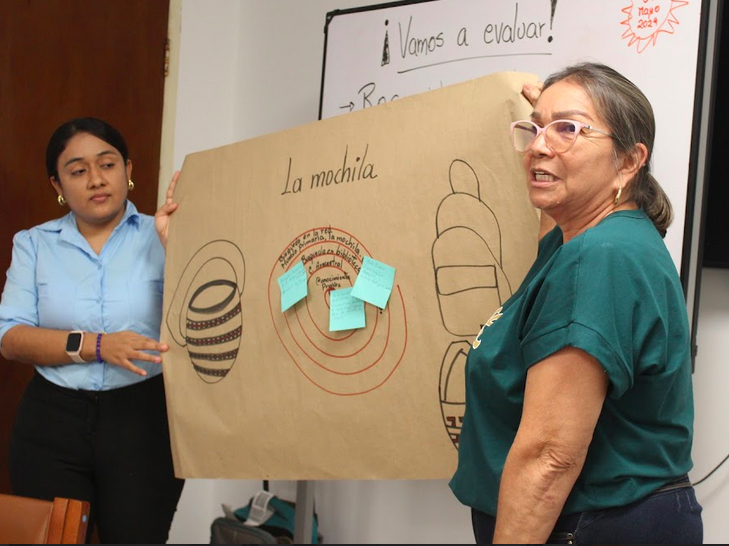
Consequently, we proposed a training that not only contemplated spaces to impart and co-construct knowledge and tools, but also included interludes between meetings, spaces to go to schools, and accompany teachers in the classroom. For this, it was essential to include financing a person from the Wikimedistas Wayuú team to join the RWC implementation group in La Guajira.
For whom and with whom do we do it?
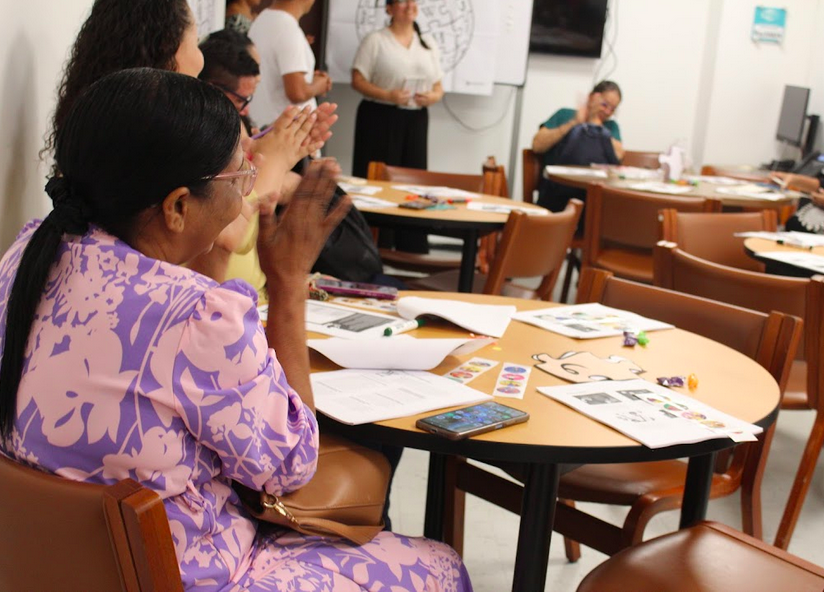
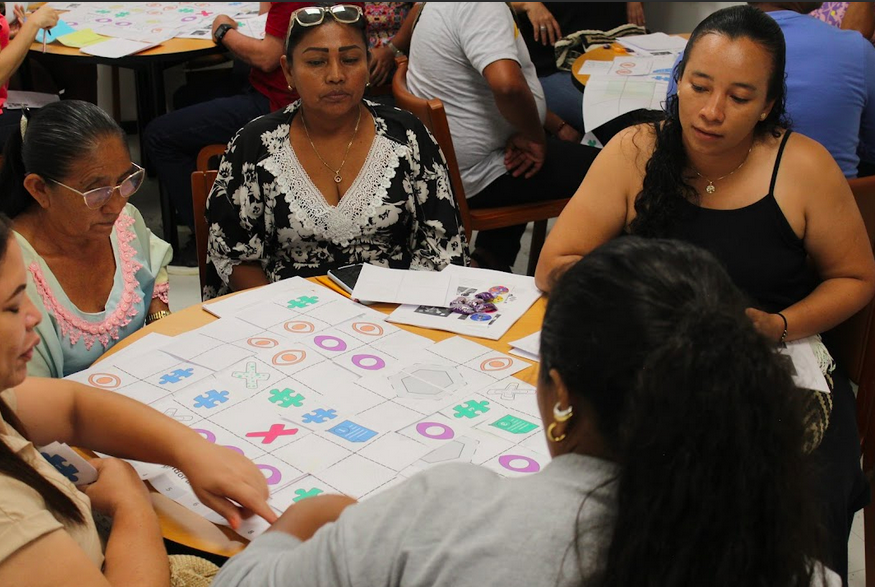
In this context, it is worth mentioning that one of the most important lessons learned from this process is related to the strengthening of the group of Wikimedistas Wayuú. From the beginning, Wikimedia Colombia understood that to sustain the changes, it is essential to have a team in the territory capable of accompanying and enhancing the tools and methodologies deployed during the implementation of the RWC program. It is crucial to make this learning visible because we want to recognize not only what is happening today in La Guajira, but also the invisible and complex work behind Wikimedia in different parts of the world.
The twist proposed in the deployment of RWC in Colombia to reach two small towns, Manaure and Dibulla in La Guajira, to work with 24 teachers from 9 schools and reach about 1000 students, can be summarized in two aspects. On the one hand, to have as a basis a cultural exchange that gives value to the knowledge of the territory in opposition to re-productivism and capacitism. On the other hand, to recognize the existence of a collective subject, since the subjects are not isolated in the world and it is the collective of Wikimedians (in this case in Colombia) that should assume the co-responsibility of implementation, promoting the creation of value networks of mutual commitment.
What is to come
In short, at the end of the implementation of RWC in La Guajira, today we know that if we want a Wikimedia movement that promotes transformations, that is, one that is understood as a process of cultural updating and in which changes as a society are given on account of consensual objectives on what is done and for what, that movement incidentally can not take place amid individual competition and the Matthew effect.
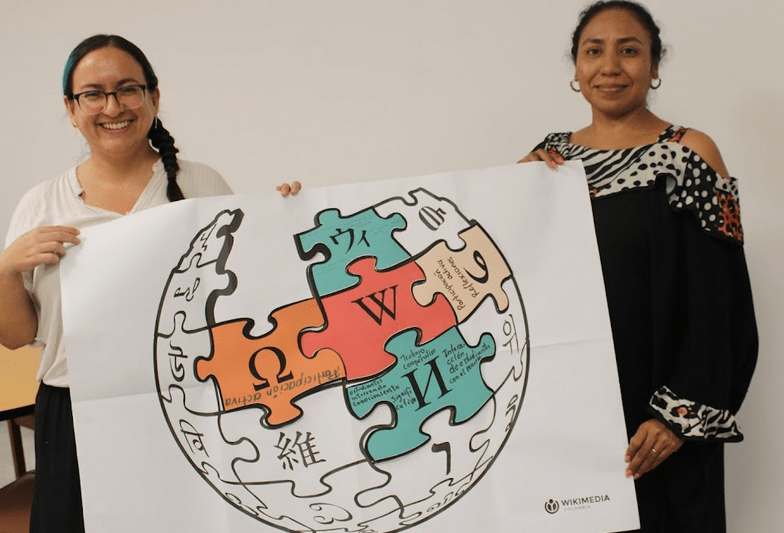
By contrast, we need now more than ever to consolidate proposals that strengthen the processes of groups and places that historically have not been centers of interest and action, dismantling centralisms to transform not only the Wikimedia movement but also the world. We propose to collectively reimagine our future, strengthen ourselves as institutions, reinvent the ways we can serve society, and enact equity as a mechanism for justice and change within and outside the Wikimedia movement in our territories and places of agency.
Wikimedia Colombia has covered each of the sessions photographically, you can find the records on Wikimedia Commons under the category ‘Reading and Writing Wikipedia‘.

Can you help us translate this article?
In order for this article to reach as many people as possible we would like your help. Can you translate this article to get the message out?
Start translation